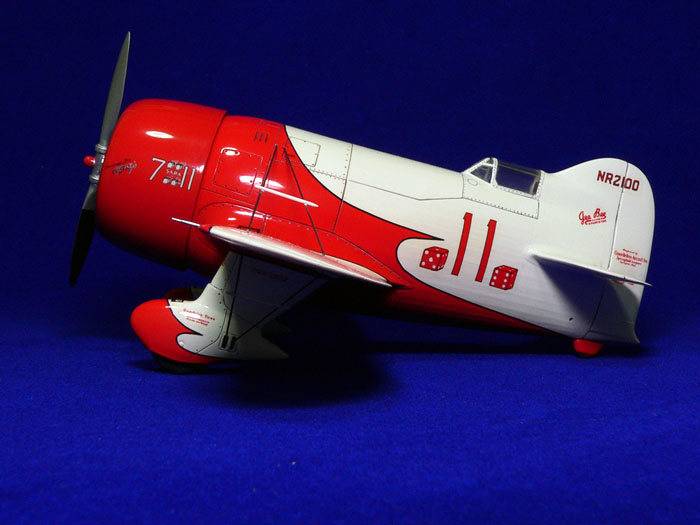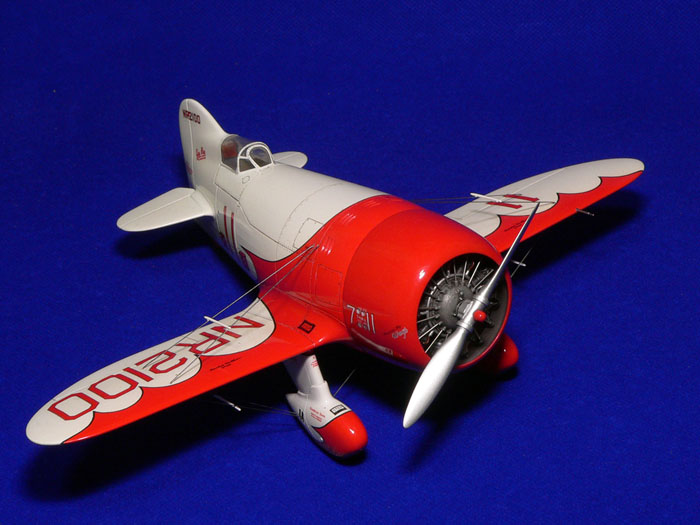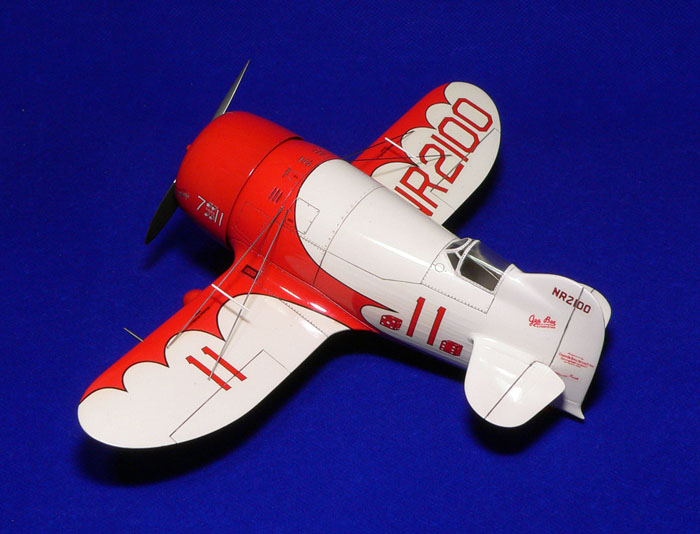|
Williams Bros' 1/32 Scale
Gee Bee Racer
by Patrick Chung
|
 |
|
Gee Bee Racer |

HyperScale is proudly supported by Squadron.com
It is probably fair to say that no other
brand in plastic modeling history has ever produced such a line of
Golden Age aircraft as Williams Brothers. I always have some kind of
special interests in building models of those flying F1 in the exciting
years.
The Granville Brothers’ GeeBee Super Sportster R-1 appears as today's
subject. This aircraft appeared in the 1932 Cleveland National Air Race.
Tthe GeeBee R-1 won the year’s Thompson Trophy with Jimmy Doolittle at
controls.

The kit features typical WB molding: translucent soft white plastic with
raised panel lines and soft details plus heavy flash, sinkholes and
dents here and there. Thick clear parts have rough texture on the inner
surface.
Other than re-scribing the panel lines
and adding rivets where appropriate, most of the assembly time went in
dry fitting, filling and sanding.
Major detailing works went to the Wasp engine including replaced
pushrods and added ignition wires.
To achieve high gloss finish, Gunze’s
super white, super Italian red, super clear II and leveling thinner (all
lacquer paints) were used through out the painting session. White is
used both as undercoat and final coat to guarantee brilliant red color.

The thin black line on the GeeBee is actually spare black decal sheet
cut into thin strips. Several coats of Super clear were shot onto the
models with at least three days in between each coat to ensure thorough
drying time.
After the clear paint dried completely, Gunze Rubbing compound was used
for polishing, followed by Tamiya’s modeling wax as a final touch.
It is worthwhile mentioning that though
the molding technology of WB’s kits released back in 1970s is not able
to compare to that of TAMIGAWA standard today, the drawings/instructions
of these kits are really something a gem, and the outline of the kit
parts are generally very accurate.
Click the
thumbnails below to view larger images:
Model, Images and Text Copyright © 2006
by Patrick Chung
Page Created 11 October, 2006
Last Updated
21 February, 2007
Back to
HyperScale Main Page |
Home
| What's New |
Features |
Gallery |
Reviews |
Reference |
Forum |
Search